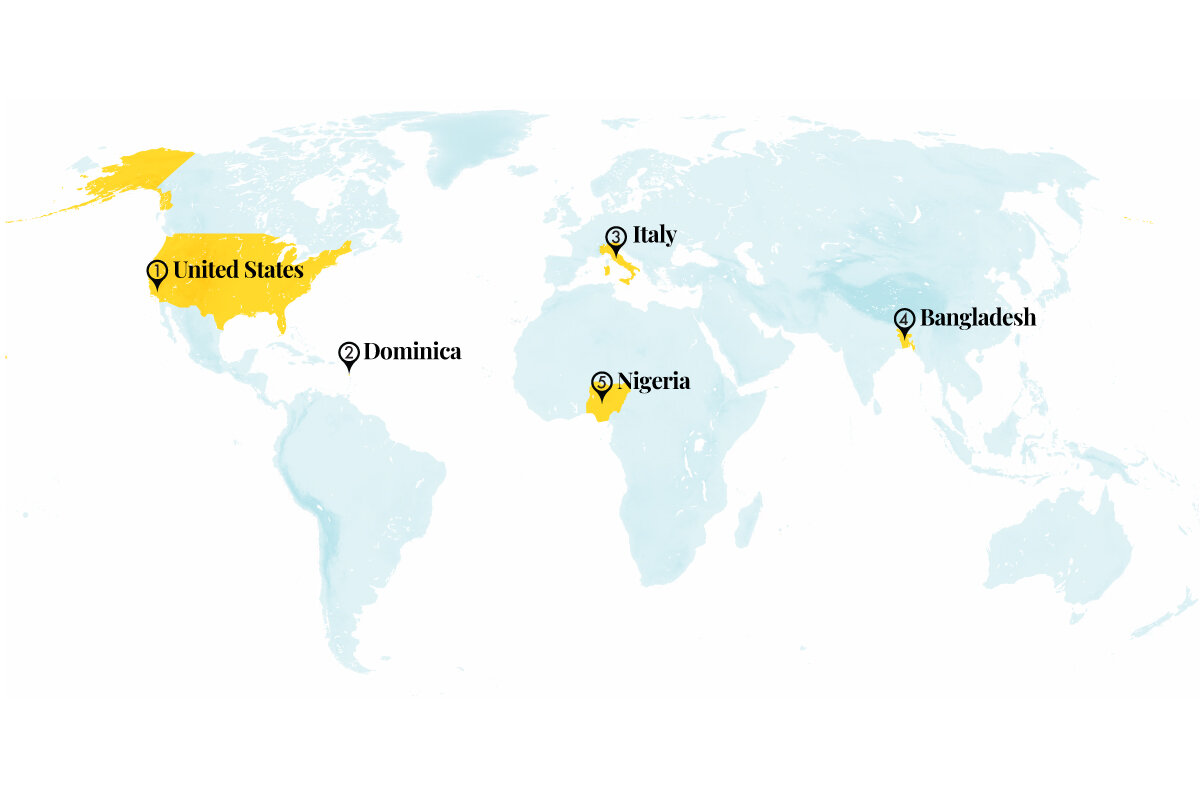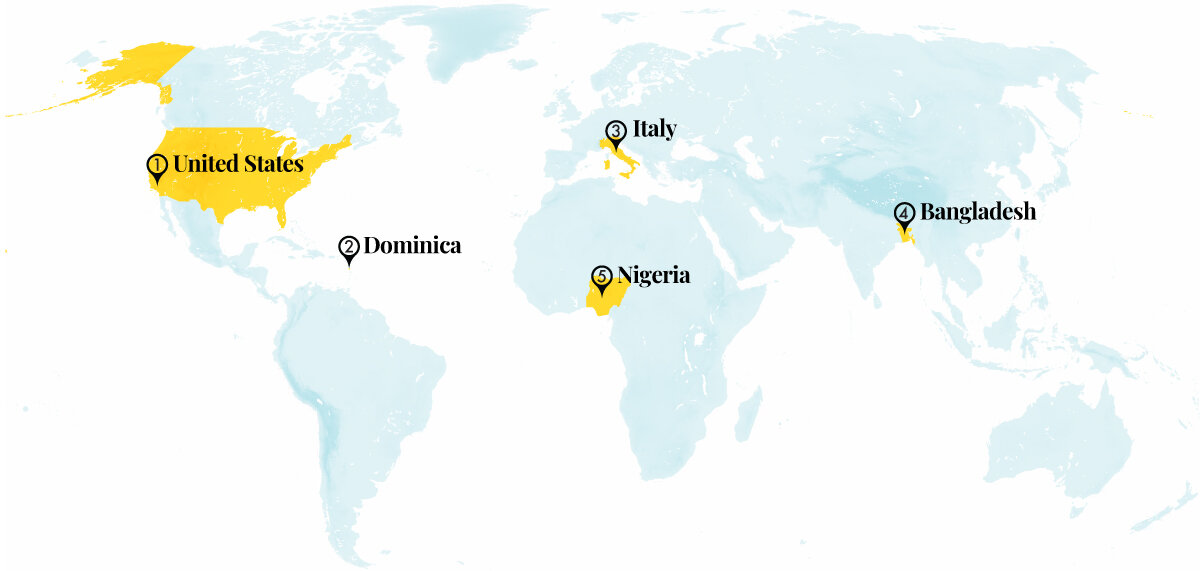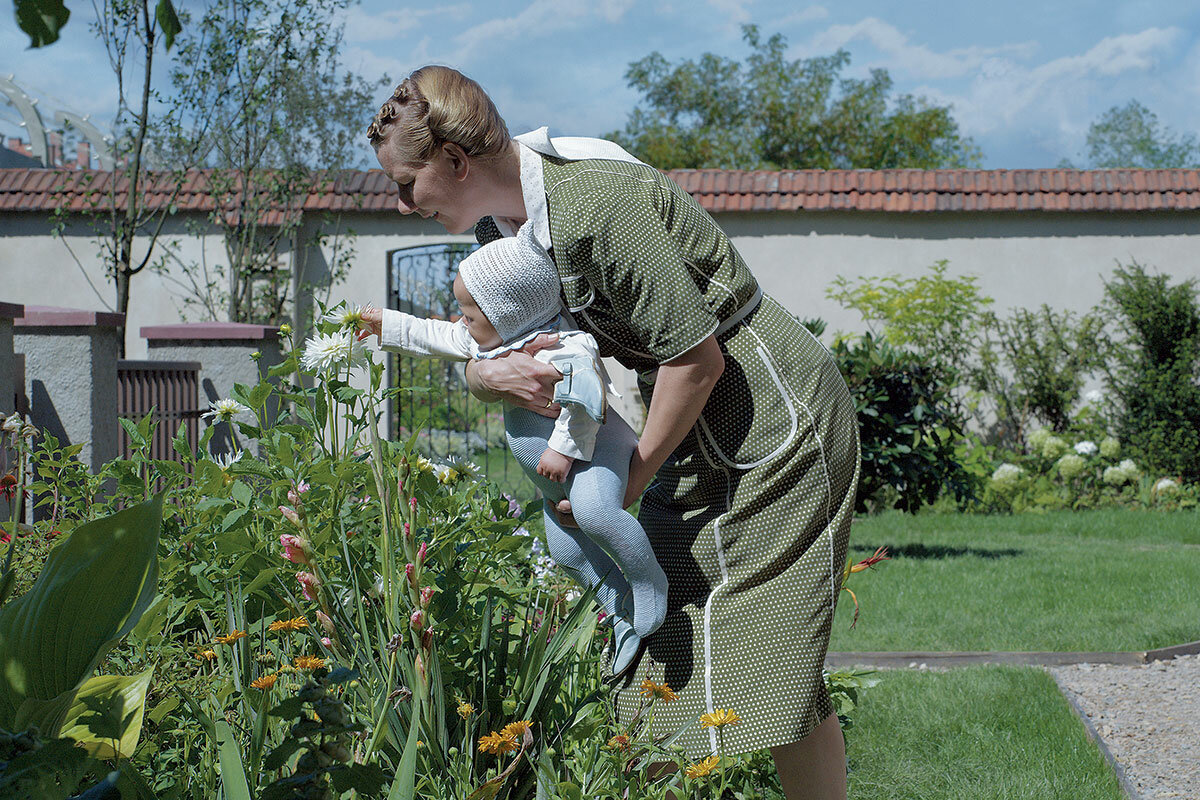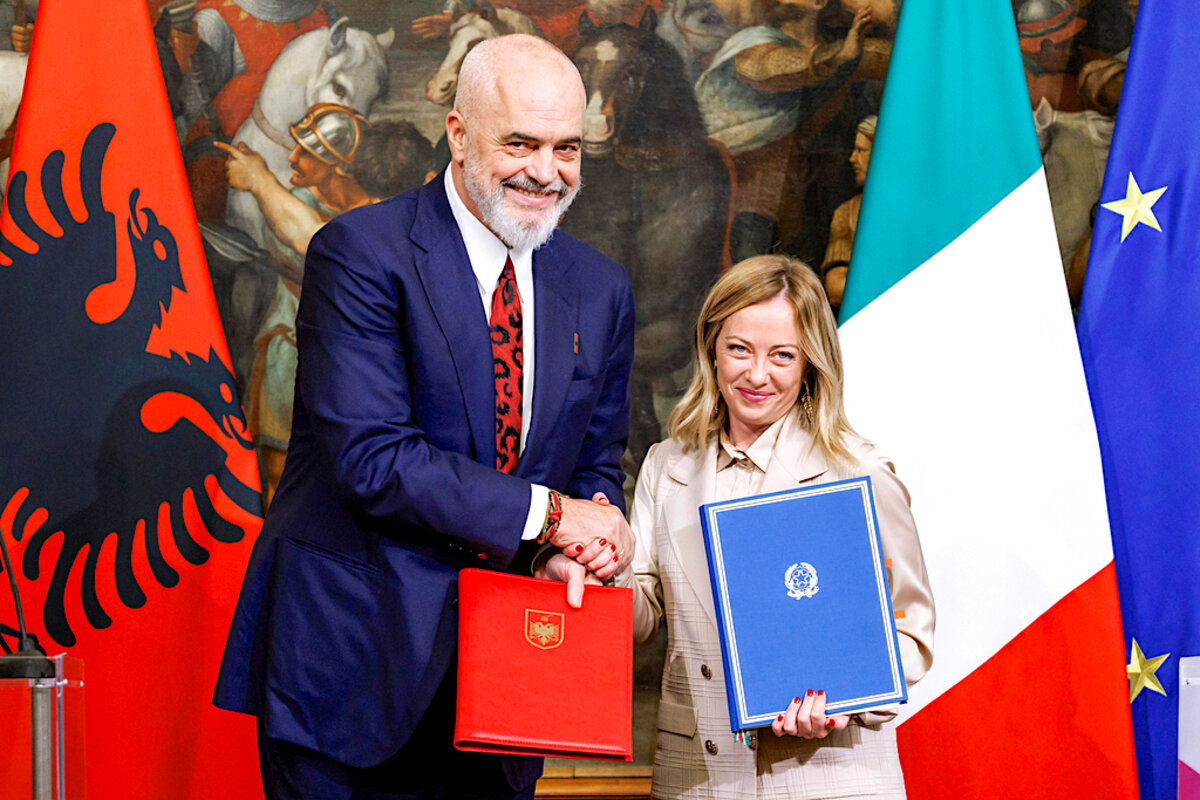A Colorado court ruling barring Donald Trump from the state presidential primary ballot because of “insurrection” is reverberating nationwide. It raises unprecedented legal questions – and also comes as a political gift to the former president.

Why is Christian Science in our name?
Our name is about honesty. The Monitor is owned by The Christian Science Church, and we’ve always been transparent about that.
The Church publishes the Monitor because it sees good journalism as vital to progress in the world. Since 1908, we’ve aimed “to injure no man, but to bless all mankind,” as our founder, Mary Baker Eddy, put it.
Here, you’ll find award-winning journalism not driven by commercial influences – a news organization that takes seriously its mission to uplift the world by seeking solutions and finding reasons for credible hope.
Explore values journalism About usMonitor Daily Podcast
- Follow us:
- Apple Podcasts
- Spotify
- RSS Feed
- Download
 Amelia Newcomb
Amelia Newcomb
How do we govern? Who or what can we trust in?
We touch on those questions in two very different stories today. There’s trust in the system: The Colorado Supreme Court’s ruling that former President Donald Trump is ineligible for the 2024 state primary ballot is spurring heated debate, putting new pressure on a democracy already experiencing heavy strains.
Then there’s trust in individual – or regional – agency. Chief culture writer Stephen Humphries recently spent time with Andy Burnham, rising-star mayor of Manchester, England. Tribalism and polarization aren’t in his vocabulary. “Devolution” is, shifting more decision-making from London to his northern region. His ethos is to bring people along through collaboration – another factor in building trust.
Already a subscriber? Log in
Help fund Monitor journalism for $11/ month
Monitor journalism changes lives because we open that too-small box that most people think they live in. We believe news can and should expand a sense of identity and possibility beyond narrow conventional expectations.
Our work isn't possible without your support.
Today’s stories
And why we wrote them
( 5 min. read )
( 6 min. read )
A threat can often spur innovation. That’s what’s been happening as Ukrainian engineers work to protect their homeland and prevail over invader Russia.
( 9 min. read )
Why should you read about Andy Burnham, mayor of Manchester, England? He’s an innovator, too, but in the realm of politics, where he has no time for tribalism and polarization.
Points of Progress
( 5 min. read )
From Italy to Nigeria, creating a more complete record of the past may better inform important decisions about the future. Some new approaches are at the heart of this progress roundup.
Film
( 7 min. read )
We all love end-of-year movie recommendations. What’s interesting to note in this year’s top picks from Monitor critic Peter Rainer is that the definition of a blockbuster has changed, and perhaps for the better.
The Monitor's View
( 2 min. read )
The European Parliament reached agreement today on a new set of asylum rules. The agreement caps a three-year effort, as Spanish Prime Minister Pedro Sánchez put it, “to have an improved, more humane, and better coordinated management of our frontiers and migration flows.”
The human influx reaching Europe has frayed unity between countries of entrance and the remaining members of the 27-nation European Union. The new framework seeks a balanced and unified response that adheres to the bloc’s founding values of equality, rule of law, and defense of individual dignity.
Some numbers illustrate the challenge. The EU has registered more than 355,000 irregular border crossings into the bloc this year, an increase of 17%. The total number of asylum-seekers could top 1 million. According to the United Nations’ High Commissioner for Refugees, more than 2,500 migrants have died or gone missing while attempting to cross the Mediterranean Sea – 50% more than last year.
Amid this human flow, Europe is drifting further from its democratic center – although finding a causal link between those two trends requires some caution. Support for some populist hard-right parties has risen above 20% in four of the bloc’s five most populous countries and is gaining in at least a dozen more. In France this week, attempts to make President Emmanuel Macron’s immigration bill more palatable to the hard right have threatened to break apart his ruling coalition.
Yet among ordinary Europeans, anti-immigrant messages may have only limited appeal. The most recent surveys by Eurobarometer found that only 31% of those asked said migration was a top-four concern, while 69% support their countries investing in programs to help immigrants integrate.
The five new regulations agreed to today would expedite asylum claims, mandate health screening for migrants, and set up facilities for more efficient deportation. Their centerpiece is a burden-sharing arrangement between countries such as Italy, Greece, and France and other EU members farther north or inland. Those countries could elect to accept migrants or pay into a fund to help “entry” states cope with the influx.
Human rights groups were quick to decry the reforms today, charging that they will result in detention camps, rapid expulsions of people back into dangerous conditions at home or in transit countries, and infringements of personal privacy. They say they were hastily adopted ahead of June 2024 European Parliament elections that could see greater gains for far-right parties.
The new rules still face several hurdles. The drafters hope, however, that they will result in better cooperation between the E.U. and its neighbors. With a common framework and "a perspective of listening, not lecturing," said Manfred Weber, leader of the European People's Party, Europe and "transit" states like Albania and Tunisia may help migrants find safer passage with dignity and compassion.
A Christian Science Perspective
Each weekday, the Monitor includes one clearly labeled religious article offering spiritual insight on contemporary issues, including the news. The publication – in its various forms – is produced for anyone who cares about the progress of the human endeavor around the world and seeks news reported with compassion, intelligence, and an essentially constructive lens. For many, that caring has religious roots. For many, it does not. The Monitor has always embraced both audiences. The Monitor is owned by a church – The First Church of Christ, Scientist, in Boston – whose founder was concerned with both the state of the world and the quality of available news.
( 3 min. read )
As Christmas candles glow around the world, we can let Christ light our hearts with spiritual, healing truth.
Viewfinder
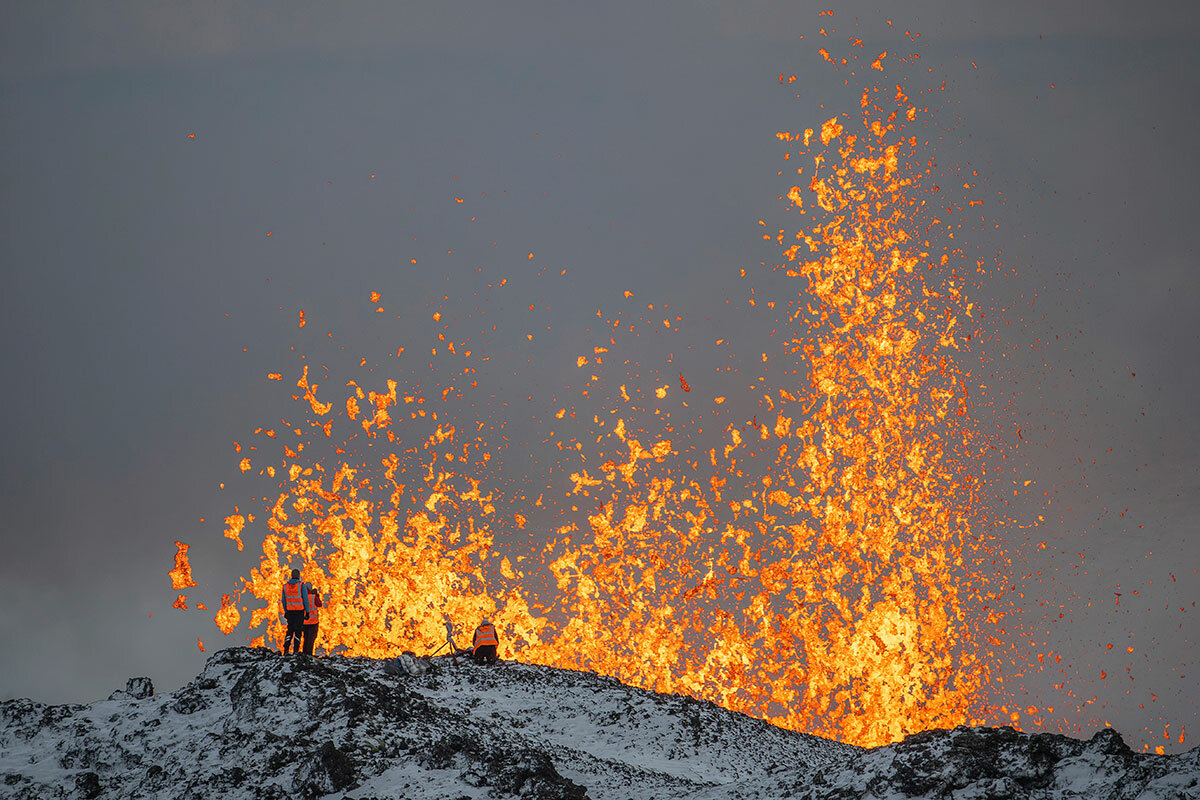
A look ahead
We’re glad you joined us today. We’d like to point you to one more read for today, about a new emphasis for the Federal Emergency Management Agency as it responds to a rising number of costly natural disasters in the United States. The agency is working to ensure that aid gets to those who need it most. You can find it here.






